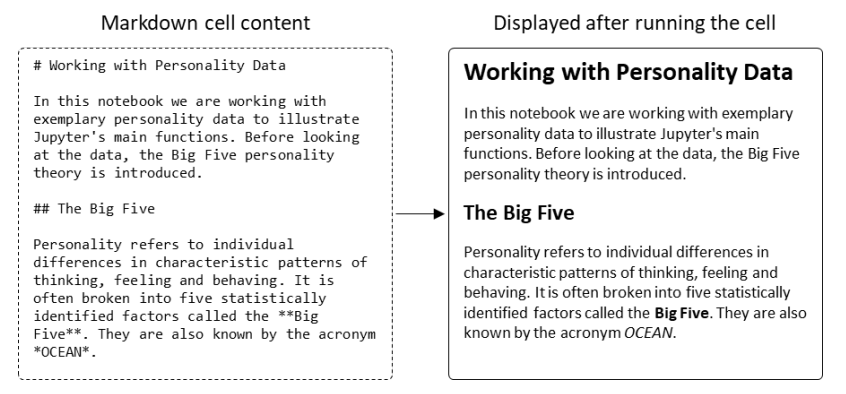Template:Article of the week
The reproduction of findings from psychological research has been proven difficult. Abstract description of the data analysis steps performed by researchers is one of the main reasons why reproducing or even understanding published findings is so difficult. With the introduction of Jupyter Notebook, a new tool for the organization of both static and dynamic information became available. The software allows blending explanatory content like written text or images with code for preprocessing and analyzing scientific data. Thus, Jupyter helps document the whole research process from ideation over data analysis to the interpretation of results. This fosters both collaboration and scientific quality by helping researchers to organize their work. This tutorial is an introduction to Jupyter. It explains how to set up and use the notebook system. While introducing its key features, the advantages of using Jupyter Notebook for psychological research become obvious. (Full article...)
Recently featured:
- ▪ Developing a file system structure to solve healthcare big data storage and archiving problems using a distributed file system
- ▪ DataCare: Big data analytics solution for intelligent healthcare management
- ▪ Application of text analytics to extract and analyze material–application pairs from a large scientific corpus










